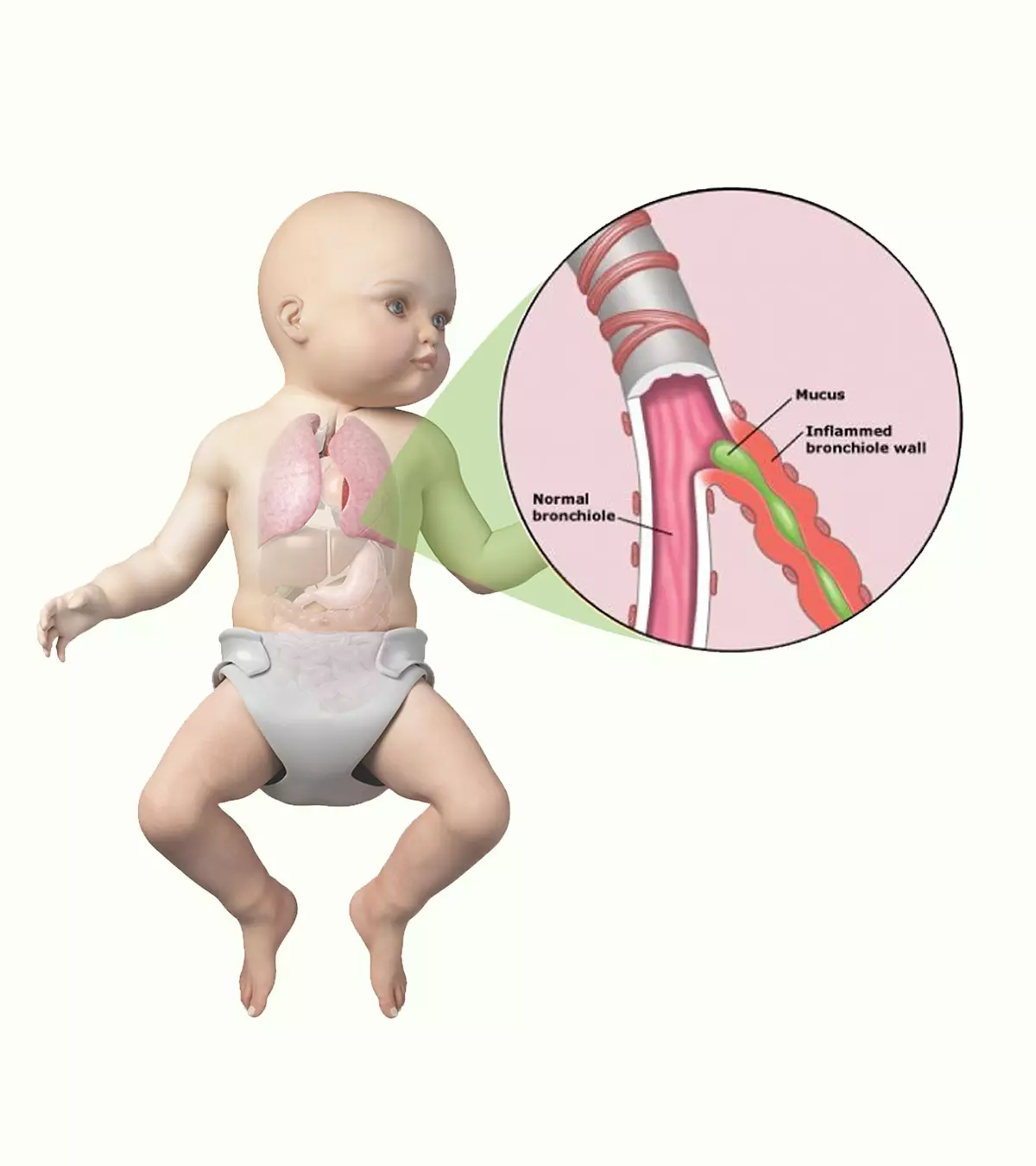

Traveling is an essential part of our daily life. While traveling is not a concern in ordinary circumstances, you may feel anxious about traveling or driving while pregnant. Although many pregnant women prefer traveling by car during pregnancy rather than public transportation, some also fear using the car.
However, traveling is not always dangerous for you and your baby. Therefore, do not worry if you find yourself in a scenario where you need to travel by car. By following a few easy precautions, you can make your car journeys stress-free.
Continue reading to learn about the fundamentals of car travel and how to make it a safe experience for you during pregnancy.
Is It Safe To Travel By Car During Pregnancy?
It is always a good idea to avoid prolonged traveling during pregnancy, especially during the first and last few weeks (1). Though your doctor has advised you to take bed rest, certain situations may propel you to travel. What to do in such a case? When it comes to traveling, car trips are probably the safest. Why? Well, because you’re more in control of the situation and have the freedom to stop or start whenever you want.
Ideally, it is a good idea to let someone else drive, especially when you have a prominent baby bump.
Nevertheless, you must take necessary precautions, know the essentials to carry, research well about the place of your visit, and keep your vaccinations and travel insurance up to date to enjoy a safe and hassle-free travel experience when pregnant (1).
Is It Safe To Drive A Car During Pregnancy?
Although you may not have to refrain from driving a car while pregnant entirely, some vital factors to consider when driving during pregnancy are the stage of pregnancy, pregnancy-related conditions or complications (if any), and your overall health status.
You may experience fatigue, nausea, heartburn, or frequent urge to urinate more often when driving in pregnancy (2). If you are apprehensive about driving while pregnant, speak to your doctor about your concerns.
How Can I Stay Comfortable When Traveling By Car?
Sitting in a particular position for longer periods of time can cause your feet and ankles to swell and cramp, so make sure you take a break often, especially if it is a long journey. During pregnancy, your urine output tends to increase, so you may need to stop frequently to visit the bathroom too.
If you plan to drive, knowing the correct postures for driving safely when pregnant is essential. Make sure you are comfortably seated with back support and knees at an equal level as your hips. Adjust your seat close to the steering (away from head and abdomen) and facilitate ample space for bending knees (when required) and for your feet to reach the pedals easily (3).
To ensure you’re comfortable while driving during pregnancy, do some simple stretches every few hours and get out of the car. Also, have a good supply of healthy snacks to keep yourself nourished.
It is also a good idea to wear loose, comfortable clothes and slippers or shoes. Avoid wearing tight clothes that keep digging in when traveling (1).
How Should I Wear A Seat Belt Safely During Pregnancy?
Wear your seatbelt under your bump and ensure it is loose yet firm and comfortable. Wearing a seat belt throughout the journey ensures that you and your baby will be protected from any harm in case of an accident (1).
Here are a few things to remember when wearing a seat belt during pregnancy (2) (4) (5).
- A three-point seat belt is preferable when pregnant
- Secure the shoulder belt across the shoulder (between your breasts) and through the chest (not too close to the neck)
- Do not place the shoulder belt underneath your arm or at your back
- The lap belt (lower strap of the belt) should be kept as low as possible (below the abdomen and above the pelvis)
- Make sure the belts are well-fitted and comfortable
Safety Tips For Pregnancy Car Travel
It is always a good idea to stay on the safer side and adopt these simple tips to tackle any concerns while traveling during pregnancy (5) (6).
- Talk to your doctor before you leave for the trip – make sure they are okay with your travel ideas. Take suggestions, if any.
- Drink plenty of fluids and have a constant supply of food in hand.
- Try to get another person to drive when tired or if it is a long journey.
- Make yourself as comfortable as possible; use cushions for support.
- Keep a list of emergency contact numbers and a fully charged cell phone for emergencies.
- Carry your first aid kit and all pregnancy medications that you may need. It is also a good idea to carry some pregnancy-safe motion sickness pills.
- It is best to have someone accompany you while driving. Avoid driving solo, especially when you are nearing your due date.
- Facilitate fresh air circulation in the car, and turn the airbag switch on (if your car has one).
- Drive slow — after all, it’s good to stay safe, especially since your baby’s health is also now a priority.
When Should You Stop Traveling By Car During Pregnancy?
According to the American Pregnancy Association, it is advisable for pregnant women predisposed to risk factors or complications (including women in high-risk pregnancy categories) to avoid travel from the 32nd week of pregnancy until childbirth (6). Also, experts advise mothers with uncomplicated pregnancies to avoid traveling by car from the 37th week of pregnancy until birth. However, if you have no health issues, you can safely travel by car for most of your pregnancy while observing safety precautions (7).
Frequently Asked Questions
1. How long can I sit in a car while pregnant?
The American Pregnancy Association suggests limiting your travel time to five to six hours at a stretch to prevent any discomfort or adversities while pregnant (6).
2. Can travel by car cause miscarriage?
You may think of avoiding travel by car during the first trimester as it is when the risk of miscarriage is the highest (8). However, unless directed otherwise by your doctor, you can usually safely travel through most phases of pregnancy. No evidence exists to prove any association between car travel and miscarriage.
3. Where should a pregnant woman sit in a car?
As long as you are wearing the seat belt and following safety precautions, you can sit in the front or rear seat of the car during pregnancy (9).
4. What should I do if I’m involved in a car accident?
Road accidents are among the common causes of injuries while traveling in pregnant women. If you experience a car accident (even a minor crash) when pregnant, you must seek immediate medical care even if you don’t notice any injuries or feel any pain (4).
Although you may avoid traveling by car when pregnant in the first and the last weeks, there could be situations when it becomes necessary. In such circumstances, ensuring you stay comfortable during the trip is vital. Wear loose clothes and suitable footwear. Carry healthy snacks and adequate water to keep yourself nourished. If you have to travel long distances, try to take breaks to stretch your muscles. Always wear a seat belt and drive the car at a moderate speed. Keep all your emergency contacts with you and consult your doctor before planning the trip.
Key Pointers
- When traveling by car during pregnancy, it is essential to consider your safety and comfort.
- Having a companion and carrying all essentials is necessary to make your travel experience secure and relaxing.
- It is ideal to avoid long travels and know the crucial precautions if you wish to drive when pregnant.
References
- Travelling in pregnancy.
https://www.nhs.uk/pregnancy/keeping-well/travelling/ - Driving while pregnant: seat belts and staying safe.
https://www.nct.org.uk/pregnancy/travelling-when-pregnant/driving-while-pregnant-seat-belts-and-staying-safe - Pregnancy: Correct Posture & Body Mechanics.
https://my.clevelandclinic.org/health/articles/6913-pregnancy-correct-posture–body-mechanics - Car Safety for Pregnant Women Babies and Children.
https://www.acog.org/womens-health/faqs/car-safety-for-pregnant-women-babies-and-children - Pregnancy and travel.
https://www.betterhealth.vic.gov.au/health/healthyliving/pregnancy-and-travel - Travel During Pregnancy.
https://americanpregnancy.org/healthy-pregnancy/is-it-safe/travel-during-pregnancy/ - Travelling while pregnant.
https://www.nidirect.gov.uk/articles/travelling-while-pregnant - Travel and pregnancy.
https://www.pregnancybirthbaby.org.au/travel-and-pregnancy - Car Safety for Pregnant Women.
https://familydoctor.org/pregnancy-should-i-use-a-seat-belt/
Community Experiences
Join the conversation and become a part of our nurturing community! Share your stories, experiences, and insights to connect with fellow parents.
Read full bio of Vidya Tadapatri













